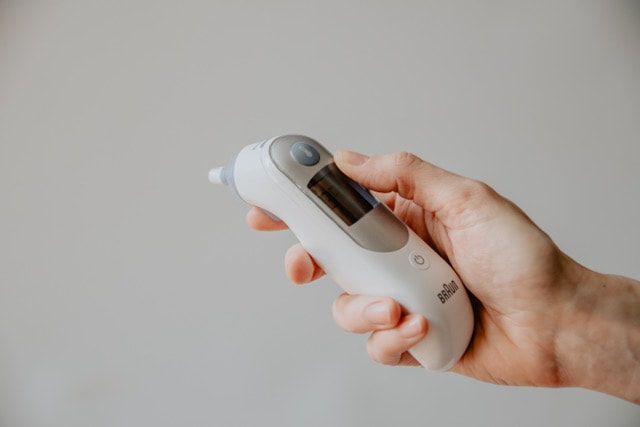There is a common misconception that a fever is something that needs to be treated and controlled. Fever is a brilliantly designed mechanism for our body to fight infections. The fever induces a whole host of beneficial changes to our immune system.
There is a trend of using fever reducers (antipyretics) in the case of viral infections and unfortunately the evidence shows this is not a beneficial practice.
“There is mounting evidence that the increase of 1 to 4°C (1.8 to 7.2 °F) in core body temperature that occurs during fever is associated with improved survival and resolution of many infections. For example, the use of antipyretic drugs to diminish fever correlates with a 5% increase in mortality in human populations infected with influenza virus and negatively affects patient outcomes in the intensive care unit” (1).
Artificially reducing a fever blunts the benefits listed above. Fever reduction with antipyretics can suppress antibody response and tends toward longer duration of viral shedding (2). In simpler terms, you can be contagious longer.
So you develop a fever, now what?
- Stay hydrated with water and unsweetened electrolyte beverages. Homemade ice pops can be very soothing. Consider making ice pops with herbal teas and coconut water.
- Eat very lightly. Broth-based soups are ideal.
- Rest
- Use the Magic Sock treatment before bed each night.
- If the fever is making you so uncomfortable that you aren’t staying hydrated properly and/or are not sleeping, it’s time to reduce the fever.
Ways to safely reduce a fever:
- Soak washcloths in vinegar (white or apple cider) and place one over the forehead and one over the abdomen.
- Take a lukewarm bath with about a cup of vinegar added.
- Homeopathic remedies work very well for fever but you will need a remedy matched to your symptoms. Reach out to your homeopath or naturopathic doctor for help in choosing a remedy.
- Fever is not safe in every condition. If a patient has sepsis or neurological injuries fever can be damaging. Neither of these conditions should be managed at home.
For more information about fevers in children, I recommend this blog written by a pediatrician.
References
- Fever and the thermal regulation of immunity: the immune system feels the heat (2015)
- Adverse effects of aspirin, acetaminophen, and ibuprofen on immune function, viral shedding, and clinical status in rhinovirus-infected volunteers (1990).
| Dr. Sara Jean Barrett is a licensed Naturopathic Doctor and co-founder of Wellness Minneapolis. She is also the President of the Minnesota Association of Naturopathic Physicians and a Member of the American Association of Naturopathic Physicians. For more information about support during COVID-19, sign up for Dr. Barrett's newsletter. |



 RSS Feed
RSS Feed